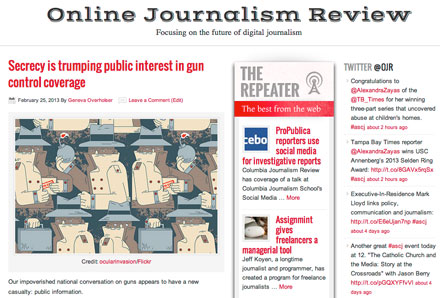
Musician Amanda Palmer (Joi/Wikimedia Commons)
Jeff Jarvis writes that the value of media should be based increasingly on relationships, rather than solely on the content produced.
He cites Google ad exec Susan Wojcicki and musician/artist Amanda Palmer. Palmer had a famously successful Kickstarter campaign for an album she chose to do without major label support. She championed the notion of relationship-building as business model recently in a TED talk:
“By asking people [to pay for your work], you connect with them, and by connecting with them, they want to help you. ‘When we really see each other, we want to help each other. People have been obsessed with the wrong question, which is, How do we make people pay for music? What if we started asking, How de we let people pay for music?'”
Wojcicki applied similar logic to advertising in a post on Google+, writing “In years to come, most ad views will effectively become voluntary.”
If media (as content and as advertising) are voluntary, Jarvis suggests, then the “argument about paywalls — and copyright and the value of content — is the wrong argument. Instead, he writes, “The discussion we should be having is how better to build valuable relationships of trust with people as people, not masses, and then how to exploit that value to support the work they want us to do.”










